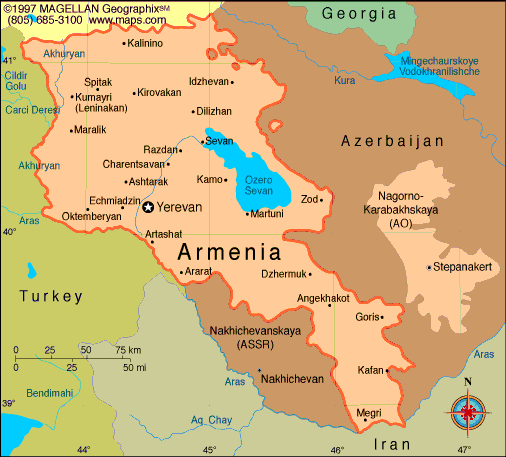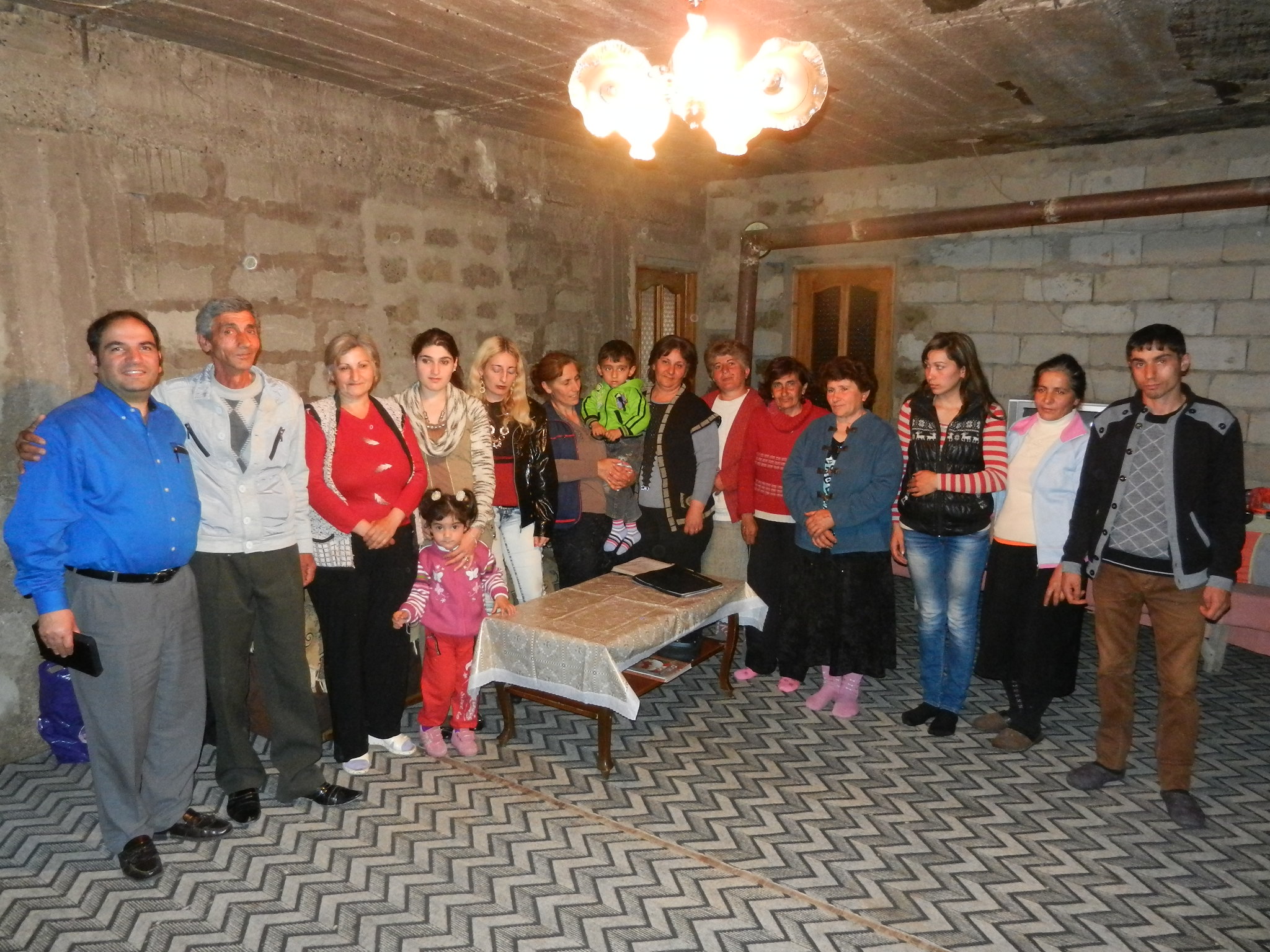Gospel in Armenia
Gospel in Armenia
 Armenia is known for being the world's oldest Christian nation – since 301 AD. The vast majority of population (about 3,5 mln) is part of the Armenian Apostolic Church. The first Baptist congregations were established in the 18th century.
Armenia is known for being the world's oldest Christian nation – since 301 AD. The vast majority of population (about 3,5 mln) is part of the Armenian Apostolic Church. The first Baptist congregations were established in the 18th century.
In the early 20th century a series of traumatic events struck a well growing Baptist movement. Armenian national genocide along with the Soviet communist regime attempted to destroy Christian faith. The atheist system has eventually collapsed and a great number of people have turned to the living faith in God. The particularly spectacular advance of Christian movement was registered in the 90s of 20th century.
In 1990 there were only 4 Baptist churches with total membership 350. Five years later this number had doubled. In 1998 there were 1100 Baptists in the land of Ararat. In 2013 the statistics registered about 6500 members in nearly 100 churches and church plants. Armenian Baptists are very active in the mission work.
Asatur Nahapetyan, the general secretary of Baptist Union of Armenia says: “The Armenian Baptists run a theological Seminary in Yerevan, organize children’s ministry including a special program of charity work among orphans and successfully plant new congregations.”
Kurdish Church Plant in Avshar
Siaband together with several other Kurdish leaders graduated from the Baptist Seminary in Yerevan. Now he leads a home group that meets in a large living room of his home.

There are several million Kurds that live in diaspora, greatest majority in Iraq and Turkey, also in Iran, Lebanon, Syria, as well as Georgia, Azerbaijan and Armenia. They don’t have own land or state however have had partial autonomy in the Iraqi Kurdistan. They push for the creation of a sovereign state. There are also several Christian Kurdish churches in Iraq that cooperate together.
However the Kurds may be different from country to country. They usually worship the Sun and meet for worship in their holy places, one of them being located in northern Iraq and another in Armenia. There is clear separation between Kurds and other nations; mixed marriages are not allowed. They also have distinct food. The Armenian Kurds are called Yezdee (syncretic religious group) and speak Kurdwandzi language which belongs to the Indo-European language group; in Armenia it is recognized as a minority language. The Bible is available in this language.
The Kurds distinguish layers of their own society. The highest and most revered are religious leaders, and the lay people are divided in two main clusters. People are born into particular clusters from one generation to another and must not mix with other groups. One who becomes a Christian is rejected by other Kurds - for ex. can’t attend festivals, weddings, funerals etc. Gospel outreach is possible only through personal visits by Christian Kurds.
Siaband says that about 1000 Kurds live in Avshar and he believes that a separate building for Kurdish congregation would draw more worshipers. He could also develop a network for the Kurdish ministry in Armenia.
European Baptist Federation together with its mission partners currently support 3 church starts in the Baptist Union of Armenia.
Daniel Trusiewicz - EBF Mission Coordinator